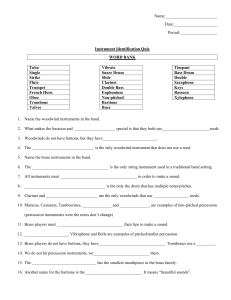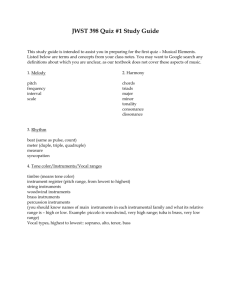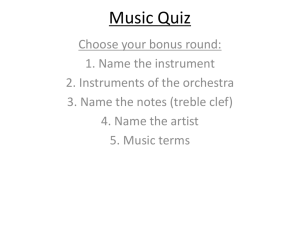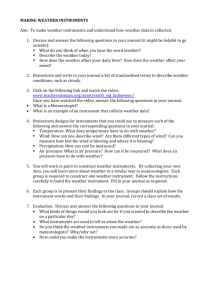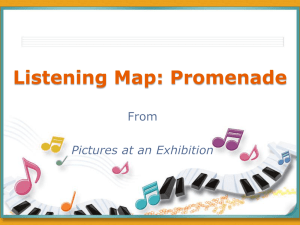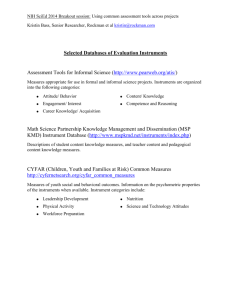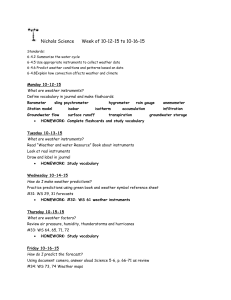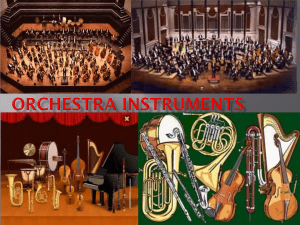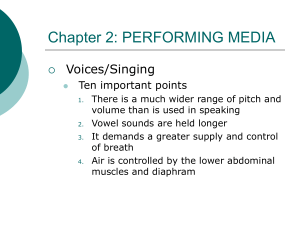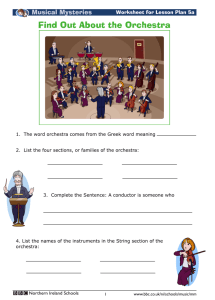Instruments of the Orchestra
advertisement
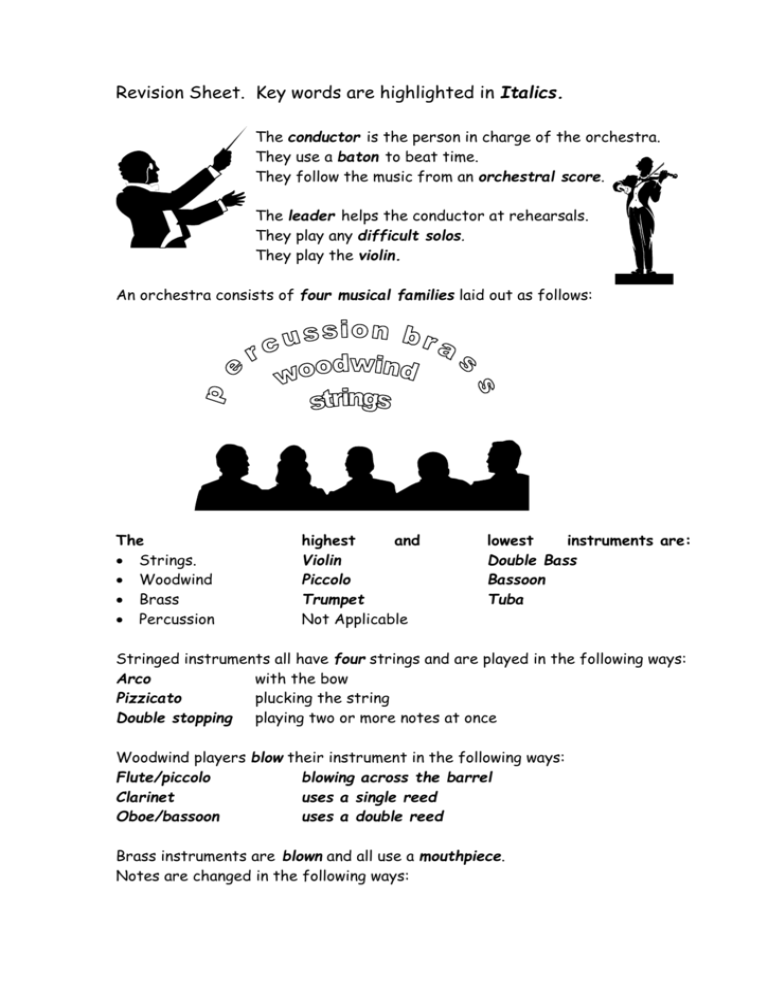
Revision Sheet. Key words are highlighted in Italics. The conductor is the person in charge of the orchestra. They use a baton to beat time. They follow the music from an orchestral score. The leader helps the conductor at rehearsals. They play any difficult solos. They play the violin. An orchestra consists of four musical families laid out as follows: The Strings. Woodwind Brass Percussion highest and Violin Piccolo Trumpet Not Applicable lowest instruments are: Double Bass Bassoon Tuba Stringed instruments all have four strings and are played in the following ways: Arco with the bow Pizzicato plucking the string Double stopping playing two or more notes at once Woodwind players blow their instrument in the following ways: Flute/piccolo blowing across the barrel Clarinet uses a single reed Oboe/bassoon uses a double reed Brass instruments are blown and all use a mouthpiece. Notes are changed in the following ways: Trumpet/French horn/Tuba Valves Trombone Uses a slide Glissando ( sliding ) In addition brass instruments can use a mute which gives the instrument a more metallic buzzing sound. Percussion instruments are played by striking and consist of two main types: Tuned instruments like the glockenspiel (metal bars) and xylophone (wooden bars) can play melodies. TheTimpani drum ( kettle ) is also a tuned percussion instrument. Untuned Instruments like the snare drum, tambourine, bass drum or castanets play single rhythmic notes or patterns. Finally when identifying the instruments by listening remember to narrow down the possibilities by using the following: What family does the instrument belong to? Ask Yourself: Is the instrument high or low pitched? Remember if in doubt trust your instinct. You’ve heard these instruments before so go with your gut reaction! It’s usually the right one.

